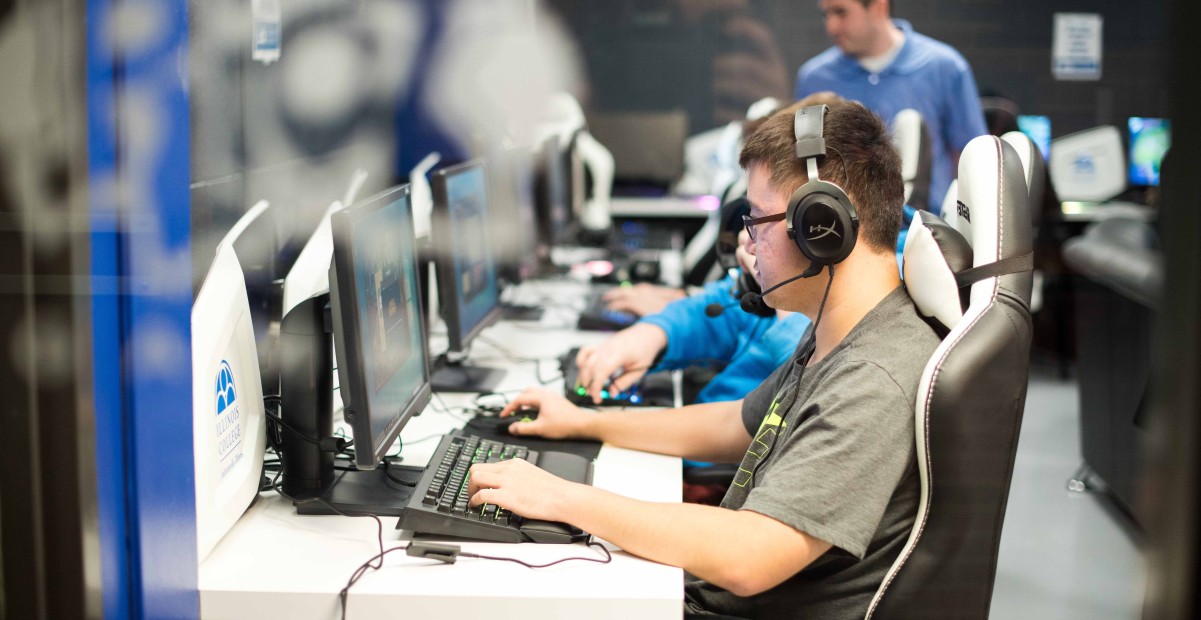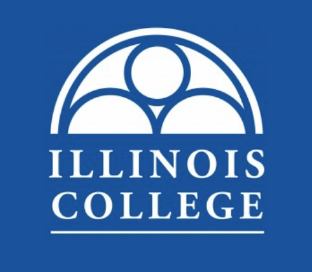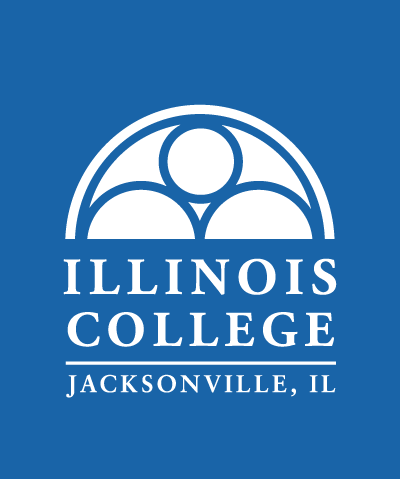In the News: Illinois College logs on for inaugural esports season
Illinois College’s first season of esports is underway with coverage of their first match.

By David Blanchette, Correspondent
Posted in the State Journal Register on Feb 11, 2018
JACKSONVILLE — Five young men rapid-fire communicated during an intense intercollegiate match recently at Illinois College.
“Careful! Coming to you! Alright Zach, you good?”
“They’re getting up for a drive right now!”
“Keep the pressure up top. Come help me up top!”
“They’re coming, man! Throw everything at them!”
“Careful, careful, careful!”
“I see it, I see it!”
“Let’s go, let’s go, let’s go! We need to go now!”
And just as quickly as the game had progressed, it was over — the word “DEFEAT” flashed across the screen.
Welcome to Illinois College’s first season of esports, the world of competitive gaming where both teams play at home but only one can win. The Jacksonville college is one of more than 50 colleges or universities with varsity esports programs, according to the National Association of Collegiate eSports.
And if you feel the online contests at these schools aren’t as hard-fought as traditional sports, think again.
“They both have competitive atmospheres and one may be physical, but you are just as upset if you lose here as you are on the field,” said Zach Heren, 19, of Auburn, a sophomore sports management major who also plays on the Illinois College football team. “I get the same amount of thrill that I get from winning in esports as I do on the field.”
“We don’t do hand gestures or high-fives. We just scream like ‘yeah, good job man!’ or ‘way to go, that was dope!’ We just hype each other vocally,” said Heren, whose parents support his competitive gaming.
“My parents think me doing something else during the off-football season, keeping myself proactive, is a good way for me to stay active and keep my grades up,” Heren said. “Because you have to get good grades in order to play.”
‘Like chess the entire time’
Black and white high-back gaming chairs line a long white table inside the Meraki Gaming Center in Illinois College’s Caine Student Center. The five players sit side by side, each with a screen, keyboard, mouse and headset with microphone. Posters depicting League of Legends, the game the team plays, adorn the black walls. Most of the players wear blue Illinois College shirts while competing, even though their opponents do not see them.
After what seems like a leisurely pregame period of selecting and outfitting on-screen players, the action suddenly begins. Staccato bursts of mouse and keyboard clicks, wildly changing screen images, and one- and two-word strategy communications fill the room. Several players’ nervous feet tap so forcefully that their chairs shake.
“When you’re in the game it’s non-stop thinking. It’s like chess the entire time,” said 20-year-old James Xu of Los Angeles, a sophomore psychology major. “So you have to constantly be thinking about yourself, what your teammates are doing, what your opponents are going to do, it’s a really fast-paced game.”
Xu said the League of Legends game that most collegiate teams play is perfect for the competition.
“Your team of five’s goal is to destroy the enemy’s base, so you have to gather across a really large map and you constantly have to make moves,” Xu said. “It’s a non-stop process for between 20 and 60 minutes.”
“Esports competition has taught me how to be mentally strong because it’s just non-stop thinking, and it has taught me how to think on my feet."
Keep calm and win
Illinois College lost the three-game match on Feb. 3 to the University of Missouri, a much larger school that they wouldn’t get to play in traditional sports.
“It is nice being able to play a Division I school, and in something other than football,” said Illinois College football and esports team member Lerendy Warren of Bethalto, a 21-year-old senior. And if you think it’s not a real sport, learn how to play the game and then you’ll see how stressful it can be.”
“Like in football, in esports we watch film, and we look at our opponents’ stats and how they like to play,” Warren said. “We go in with a game plan, we don’t go in blind.”
Besides a team strategy, each individual player has a mouse-driven mantra.
“Keeping calm, keeping your head level, not getting aggravated over anything that happens while you’re playing or anything your teammates are doing,” said Dylan Cawthon of Bluffs, a 25-year-old freshman who wants to go into the gaming business. “We use voice communication software while we are playing, and we talk to each other, let each other know what the players we are playing against are doing, where they’re at, things that we think we can do.”
Jakob Kording, 19, a sophomore mathematics and economics major from Jacksonville, had not thought about competing in esports until the previous coach talked to him about it at the end of the spring 2017 semester.
“I’m a math major. I do a lot of problem solving, and in the game there are a lot of problems,” Kording said. “You always try to think ahead. You always try to figure out if you’re in a problem. How do you get out of that? How do you capitalize on mistakes?”
“Winning feels good, kind of the same way you feel when you get a good grade on a test,” Kording said. “It’s like, I prepared for this, and it went the way I expected. It is just a satisfying feeling.”
Illinois College Esports Head Coach Justin Bragg, a former semi-professional and nationally-ranked gamer, also likes to win, something that eluded the Illinois College team against Missouri.
“The biggest problem is you waited too long,” Bragg said to the team following the game. “We really need to force something, pull the trigger faster.”
“There’s always more work to be done, more improvement that they can do, but as far as coming together for the first time this year I think they are doing a really good job,” Bragg said of his team. “We practice by playing solo two-games, five-on-five scrimmage matches with other schools, and we have game reviews to see what decisions we made that were correct and which ones we can improve on.”
“Esports puts us out there as having something different, something that people will want to come to the college to do,” Bragg said. “There aren’t many esports programs where they are giving out scholarships for students to come play. You might have only 45 to 50 schools that do that right now.”
Recruiting tool
Adam Lee, 17, from Hudsonville, Michigan, is being recruited to play on Illinois College’s esports team and has been offered a scholarship to do so. He came to campus on Feb. 3 to watch the match in person.
“I originally just started looking around for small liberal arts colleges, and I noticed that they had an esports team,” Lee said. “I started looking more into the school itself and found out I liked it, so now I’m here. As of now, I most likely will go to Illinois College.”
“I think from a lot of people it is kind of getting the respect it deserves. In the pro scene you might get 50 million people watching the world championship,” Lee said. “I think now that it’s starting to come down to people are realizing that this is a big thing. It’s not just a fad that comes and goes.”
Illinois College announced the formation of their esports team one year ago and hired Christian Matlock as coach. Matlock left to move closer to his family and Bragg was then hired in October 2017, according to Stephanie Chipman, the vice president of enrollment management and college marketing. She said the college also is standing behind the new program with significant privately funded esports scholarships ranging from $15,000 to $20,000 per year for all four years.
“Esports teach skills that align with Illinois College’s promise that all students graduate ready for personal and professional success. Our esports student-athletes learn skills like critical thinking, time management, working in diverse teams and resource efficiency, all of which align with IC’s mission and the learning outcomes our students can expect.”
“Esports is a rapidly growing sport and I expect IC’s team to grow as well,” Chipman said. “I look forward to seeing new titles added to the IC esports program in the near future.”
Competitive gaming is becoming one of the world’s fastest-growing recreations, with esports having gone from a fan base of 89 million in 2014 to more than 150 million in 2017 and projected to exceed $1 billion in revenue by 2019, according to Illinois College.


